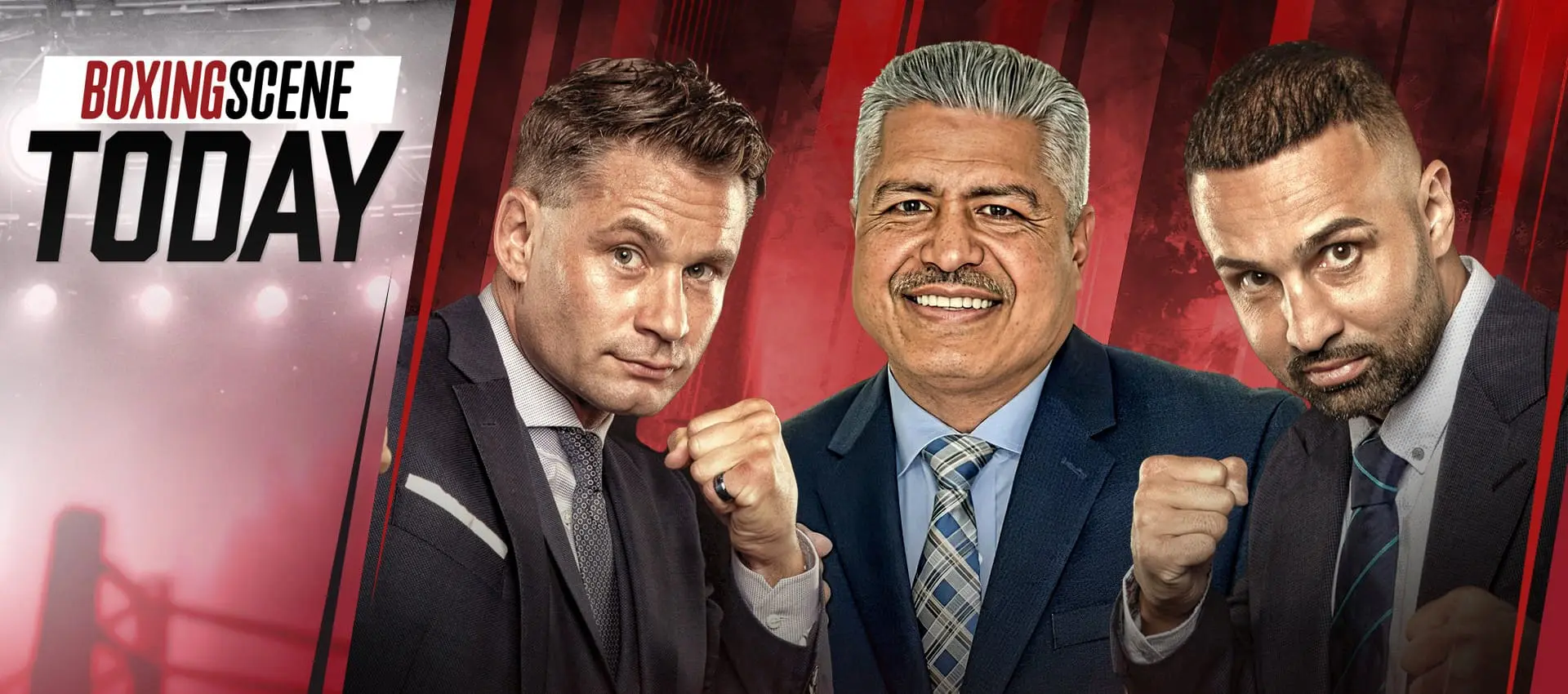
Saturday | Jan 24, 2026 | 4:00 PM EST
Raymond Muratalla vs Andy Cruz
Khalil Coe vs Jesse Hart
Omari Jones vs Jerome Baxter
Israil Madrimov vs Luis Salazar
DAZNLas Vegas, Nevada
'BoxingScene Today'Talk Show
Pauli, Algieri, and Coach Garcia breakdown today's top stories

Upcoming episode - coming soon
Boxing Interviews
Interviews with boxing biggest stars












